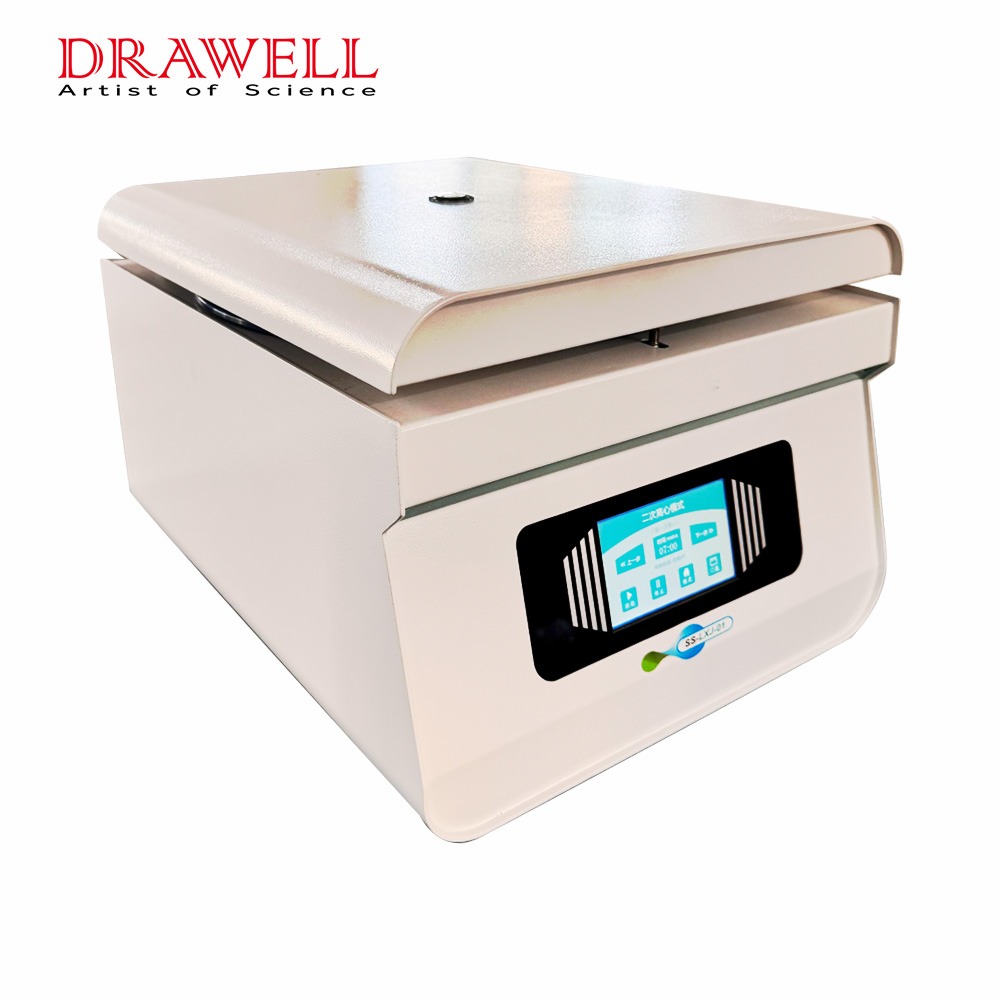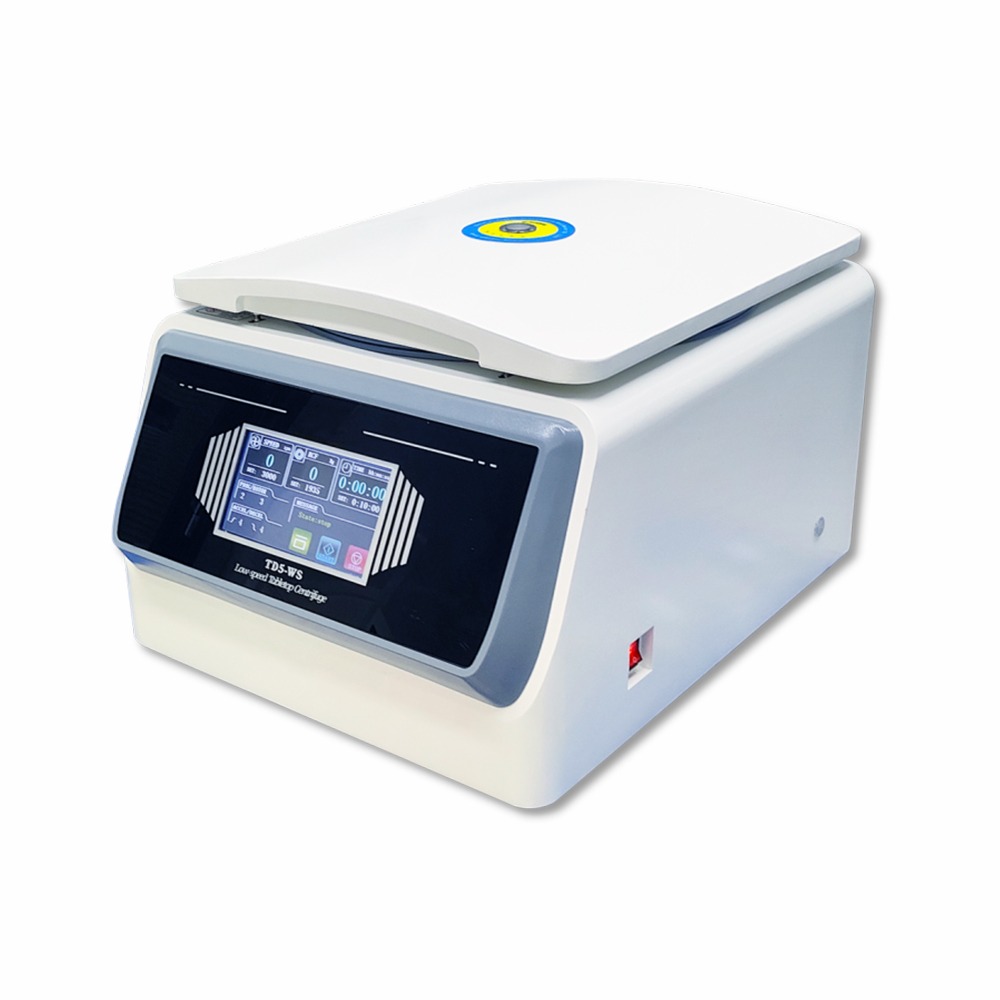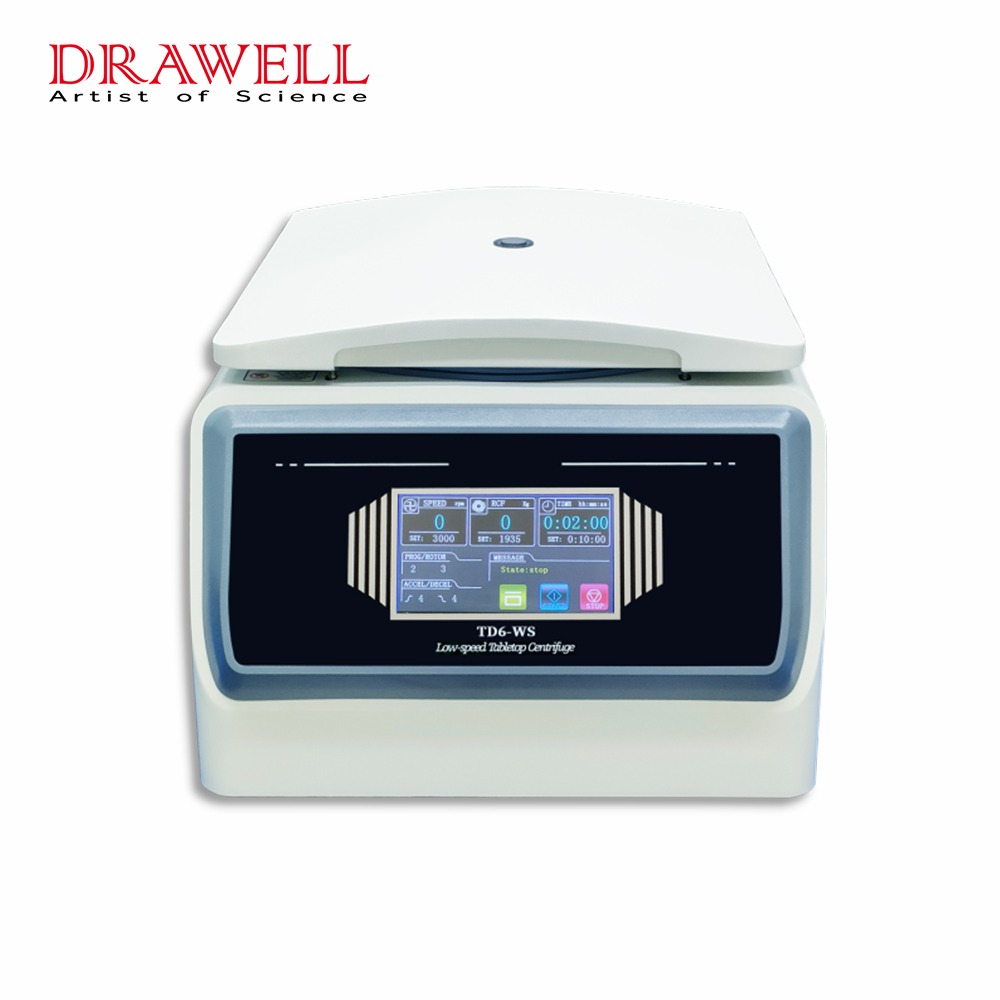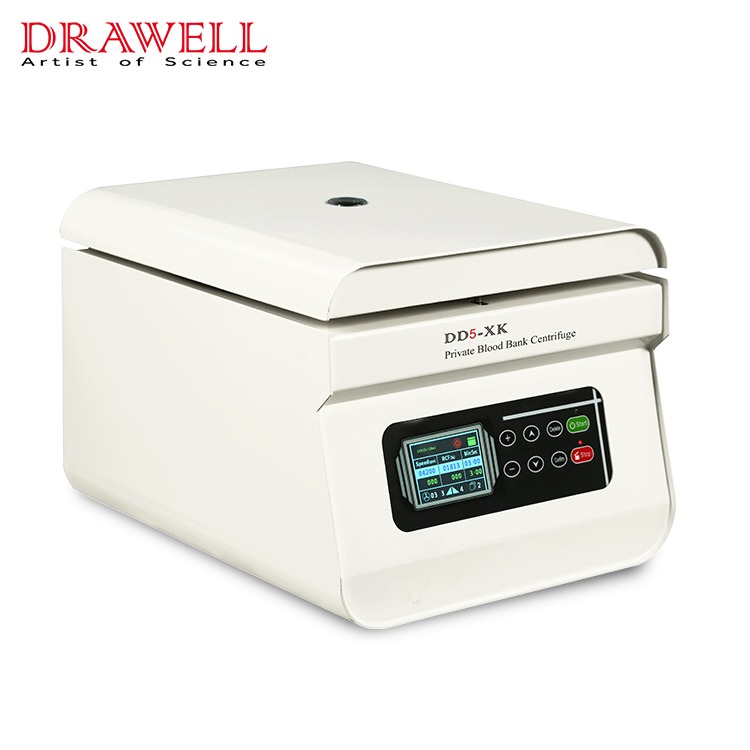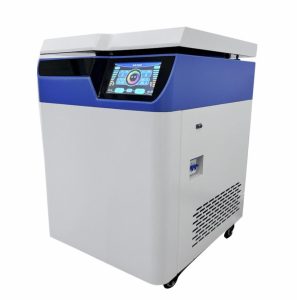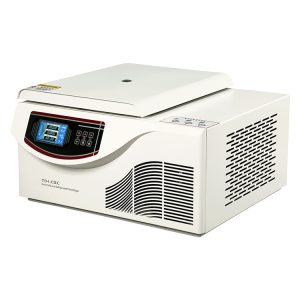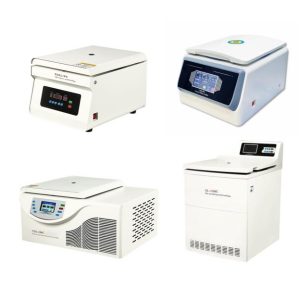In labs, efficiency, space-saving design, and high performance are crucial, particularly for smaller labs working with limited budgets. Benchtop centrifuges are key to meeting these demands, offering efficient, compact, and versatile solutions for various tasks. They’re a game-changer for streamlining workflows.
Why Choose Benchtop Centrifuges for Small Laboratories
A benchtop centrifuge is a compact instrument used in the laboratory to separate the various parts of a sample based on density. They spin at high speeds and can efficiently complete tasks such as DNA extraction, blood separation, and cell precipitation on the laboratory bench. Unlike floor-standing centrifuges, these centrifuges are designed to be easily placed on the laboratory benchtop, making them an ideal choice for laboratories with limited space. Here are the reasons:

- Space-Saving Without Compromise
One of the primary advantages of a benchtop centrifuge in the smallest lab is the compact design. Contrary to floor-standing models these centrifuges are able to be set on workstations or counters and leave ample floor space to other things. Despite their smaller dimensions they usually provide similar speeds and the force of centrifugal relative (RCF) that makes them ideal for a broad variety of tasks, ranging starting with basic cell separation, to more sophisticated molecular biology processes.
- Cost-Effective for Tight Budgets
Budgetary considerations are typically important for smaller labs which is why benchtop centrifuges offer an economical alternative to larger models. They usually have an upfront price that is lower and their maintenance requirements are low. A lot of models are energy efficient and designed to last that means lower operational costs in the long run. For laboratories that need to outfit themselves with top-quality instruments, but without exceeding their financial limitations the benchtop centrifuges provide high returns on investments.
- User-Friendly and Time-Efficient
Modern benchtop centrifuges have been designed to make it easy to use. Digital controls that are intuitive, clear display panels, and custom spin programs make it easy for all levels of proficiency. In high-throughput environments, where time is a major element, the rapid set-up and low amount of training for these devices could dramatically improve the efficiency of workflow. Some models also include automatic lid locking systems, imbalance detection and pre-programmed cycle cycles, which improve security and ensuring consistent results.
- Versatile for Multiple Applications
Another advantage of benchtop centrifuges is their flexibility. They can be equipped with a range of adapters and rotors, making them able to process different size tubes and sample volumes. This flexibility makes them ideal for a variety of uses, like the separation of serum and plasma as well as extracting nucleic acid or concentrating cells, and even managing urine sedimentation. In laboratories that perform multidisciplinary research, this flexibility makes sure that one device can be used for multiple purposes.
- Portability and Shared Use
In shared labs or labs with mobile testing equipment, the portability of benchtop centrifuges is an important advantage. They can be moved or moved when needed providing flexibility in layout of labs and workflow changes. This is especially beneficial for educational settings and mobile clinics, where equipment has to be frequently moved or reconfigured.
- Reliable Performance in a Compact Form
The advancements in technology have enabled benchtop centrifuges to meet the capabilities of larger models. A lot of them are equipped with features, such as adjustable speed controls, fast acceleration and brakes, and the ability to regulate temperature to protect sensitive sample. These features make sure that users don’t have to compromise on the result quality, regardless of the device’s size.
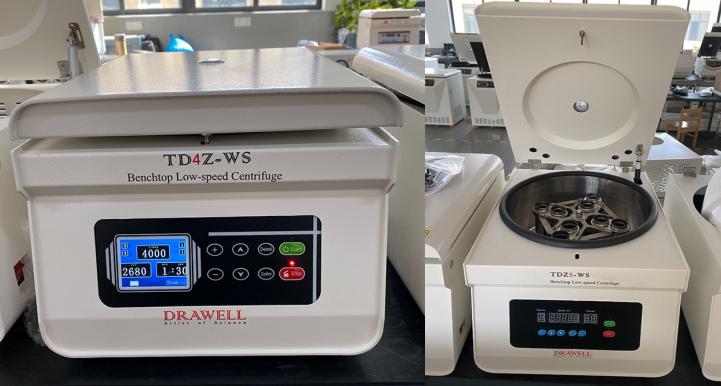
Key Laboratory Applications of Benchtop Centrifuges
| Laboratory Field | Key Application | Typical Samples |
| Clinical Laboratory | The separation of components from blood to aid in diagnosis | Whole plasma, serum, blood |
| Molecular Biology | Protein purification and nucleic acid | DNA, RNA, proteins |
| Cell Biology | Organelles and cells that pellet | Cell cultures, cell debris, organelles |
| Microbiology | Washing and concentration of the microbial cells | Bacteria, yeast and fungi |
| Biochemistry | Separation of metabolites and enzymes | Supernatants, lysates |
| Pharmaceutical Testing | Analysis of formulations and compound isolation | Mixtures of test substances, suspensions of drugs |
| Environmental Science | Particulate and sediment separation from samples of the environment | Sludge, water, soil |
| Food and Beverage Analysis | Clarification and separation of quality control testing | Dairy juice, wine, sauces |
| Academic and Teaching Labs | Training and demonstration of centrifugation concepts and techniques. | Lab-prepared and educational kits |
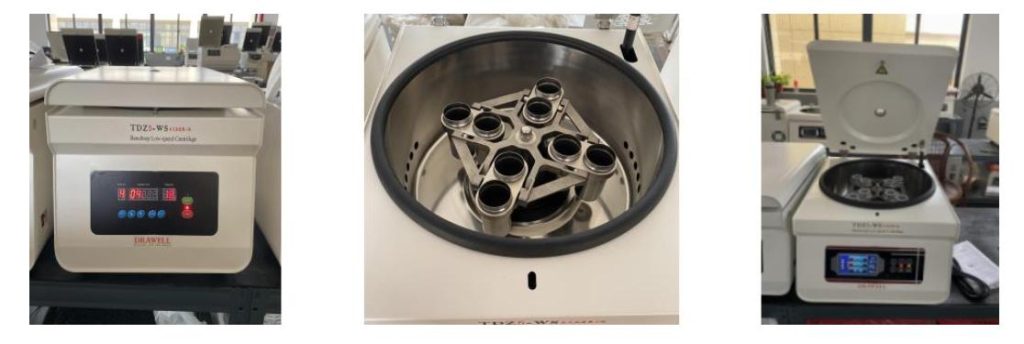
Key Factors to Consider for Choosing the Right Benchtop Centrifuge in Small Labs
Selecting the best benchtop centrifuge for a small laboratory is a choice that transcends the price and size. Although compactness is essential for labs with limited space and labs, the centrifuge has to be able to meet the safety and performance requirements for the laboratory’s everyday routine. A well-chosen centrifuge is able to simplify workflows, improve the amount of samples that are processed, and provide constant and reliable results.
- Performance Specifications
At the core of a centrifuge’s functionality are its performance capabilities–specifically, speed (revolutions per minute or RPM) and relative centrifugal force (RCF). These are the factors that determine the ability of a centrifuge to effectively separate the components of a sample according to density. Labs that work with delicate biological materials or applications that require high speeds must make sure that the machine has enough RCF and also provide fine control of speed and duration.
- Rotor Flexibility
Configuration and compatibility with rotors is a key factor in the centrifuge’s ability to perform. Fixed-angle rotors work well for fast sedimentation, whereas swing-out rotors are great for precise layering, like in the process of separating blood. Small labs should opt for models with an interchangeable rotor option or modular adapters to allow for a range of tube sizes and samples. This flexibility eliminates the requirement for multiple centrifuges while maximizing the utility of the equipment.
- Capacity and Sample Volume
The capacity of a centrifuge’s tube and chamber’s size must be in line with the laboratory’s requirements for sample volume. Smaller labs usually have a small volumes of work, however they should still be aware of whether the centrifuge is able to process enough samples in a single cycle to ensure efficient workflows. Inadequate capacity could lead to problems, and overestimating it could cause waste of resources and time.
- Footprint and Ergonomics
One of the major reasons to choose the benchtop model is its small size. But not all benchtop centrifuges are equally efficient in space. Take into consideration the dimensions of the unit relative to the bench space and make sure it has adequate airflow as well as a smooth lid opening. The portability aspect is important in labs that need to move or share it between different workstations.
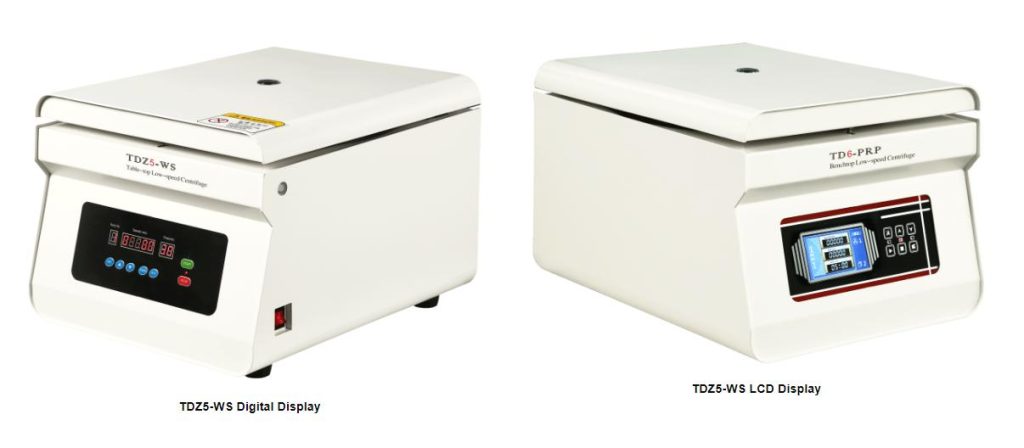
- User Interface and Programming Features
It is crucial to operate with ease for a smooth operation, particularly in labs with a lot of users. Clear digital displays easy to use controls, as well as customized programs minimize the chance of error by the user and increase reliability. Timers, memory recalls for settings that are frequently used and real-time monitoring improve usability and accuracy.
- Safety Features
Centrifuges are characterized by high-speed rotation which makes safety a major aspect. Important features include the automatic locking of lids and rotor imbalance detection as well as emergency shutdown. Certain models with advanced features also include temperatures control to shield samples that are sensitive to heat. In small laboratories where several users can use the centrifuge, the built-in security mechanisms aren’t negotiable.
- Noise and Vibration Levels
Because benchtop centrifuges are near to laboratory personnel, a quiet operations are highly desired. Vibration and noise can cause workplace discomfort and wear on equipment. Pick a centrifuge that has an enviable reputation for quiet, low-noise operation particularly when the centrifuge is used often or for extended periods of time.
- Maintenance and Durability
The importance of durability is particularly important in small laboratories where equipment has to be reliable and last for a long time. Find units constructed of sturdy materials that are resistant to maintenance needs. Simple-to-clean components and rotors with easy access simplify routine maintenance of benchtop centrifuges and decrease the amount of time that is needed to repair. In addition, look for warranty coverage and dependable technical assistance offered by the company.
- Budget and Total Cost of Ownership
While the initial cost is significant labs must also take into consideration the long-term costs of operation, such as power consumption, rotor replacement and maintenance costs. Making the investment in a top-quality equipment that is energy efficient and has a longevity of service may provide more value over time as opposed to choosing the most affordable alternative.
Drawell is a reliable supplier of top-quality benchtop centrifuges, which meet the demands of small labs in the academic, clinical research. With a particular emphasis on durability, precision and user-friendly designs, Drawell centrifuges offer reliable performance in a compact design. With excellent technical support and a dedication to continuous innovations, Drawell will be an ideal choice for labs looking for reliable and efficient centrifugation solutions.
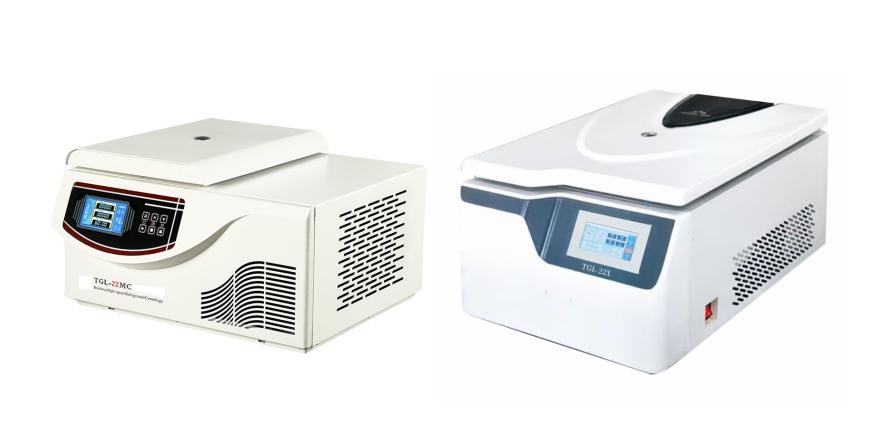
Recent Innovations in Benchtop Centrifuges for Small Laboratories
The benchtop centrifuge has seen a significant improvement in recent years, particularly to address the changing requirements of small labs. These advances are altering the way that compact centrifuges are utilized, improving not just performance, but also safety, usability and adaptability.
- Digital Intelligence and Smart Interfaces
Modern benchtop centrifuges come equipped with high-tech digital displays as well as smart touchscreen interfaces. The upgrades let users create precise speed, timing and RCF values. save custom protocols and receive real-time alerts of irregularities or mistakes. The addition of memory functions that are used for repetitive tasks reduces setup time as well as human errors, simplifying the workflows of small labs with a lot of activity.
- Quiet Operation and Enhanced Stability
The latest models are much quieter motors as well as improved vibration-damping mechanisms. These allow benchtop centrifuges to perform smoothly in shared workspaces or open labs. Improved rotor balancing mechanisms as well as noise-cancelling technologies allow these centrifuges to be used in environments that are sensitive to noise, which improves the user’s comfort when using them for long periods of time.
- Compact High-Speed Designs
Despite their size, the latest benchtop centrifuges use can reach speed and levels of RCF comparable to the floor-standing models. Manufacturers have improved the motor’s technology and rotor’s dynamics to permit high-speed separation between macro and micro samples. These high-speed benchtop centrifuges provide high performance , which are particularly helpful in molecular biology research as well as clinical diagnostics and the analysis of proteins.

- Versatile Rotor Systems
The advancement in rotor design has led to the development of modular systems that can accommodate a variety of tube sizes and types. The latest benchtop centrifuges come with rotors that can be swapped quickly to let users change between fixed-angle, swing-out as well as plate-style rotors with no tools. This versatility allows labs to tackle more diverse processes for samples with the use of a single machine.
- Built-In Safety Enhancements
Security innovations include automatic lid locking when operating, balance detection or emergency brake systems. Some models also include temperatures control options for heat-sensitive samples like live cells or enzymes. These safety features ensure conformity with lab standards and minimize the chance of injuries.
- Energy Efficiency and Low Maintenance
Modern designs concentrate on reducing the power consumption of your machine and making maintenance easier. Brushless DC motors and upgraded internal components can extend the lifespan of centrifuges, and decrease wear. Some models come with clean rotors that are easy to clean and sealed chambers to avoid contamination and make routine maintenance easier.
- Connectivity and Data Integration
With the increasing demand for digitalization in labs some benchtop centrifuges come with USB ports as well as Bluetooth and even WiFi connectivity. These capabilities allow for the integration of lab Information Management Systems (LIMS) that allow users to track operation data in real-time and ensure traceability in controlled settings.
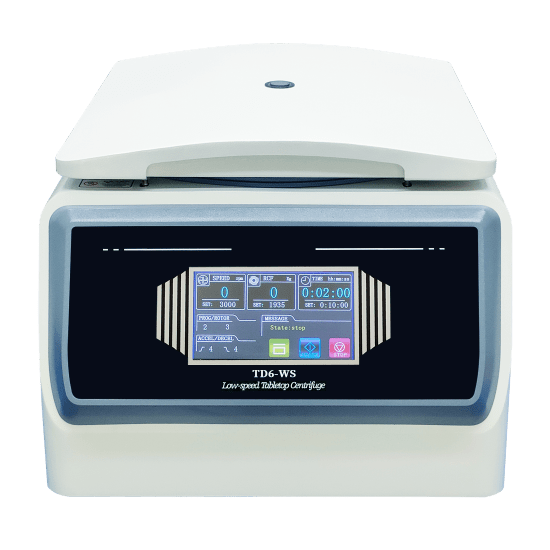
Best Practices for Maintaining Benchtop Centrifuges in Small Laboratories
| Maintenance Area | Best Practice | Purpose/Benefit |
| Daily Cleaning | Cleanse the rotor chamber as well as exterior surfaces using mild disinfectant | It prevents corrosion and contamination. |
| Rotor Inspection | Verify for cracks, corrosion or imbalance prior to using | It ensures safety and extends the lifespan of the rotor |
| Balancing Loads | Always weigh samples according to mass and location. | Reduces the strain on motors and helps prevent the possibility of damage |
| Routine Lubrication | Apply manufacturer-recommended lubricant to rotor seals (if applicable) | Reduces wear and ensures an efficient operation |
| Lid and Lock System Check | Check lid locks securely and that it is released correctly | Assists in ensuring safety of the user and equipment integrity |
| Speed and Time Calibration | Verify the timer and speed settings regularly. | It ensures accurate and consistent centrifugation efficiency is accurate and consistent |
| Scheduled Professional Service | Follow the maintenance schedule of the manufacturer and record dates for service. | Finds issues that are not obvious and ensures the warranty in conformity |
| Storage When Not in Use | Keep lid closed after each use to avoid any odor or condensation from forming. | Improves ventilation and helps protect internal components |
| User Training | Make sure that all operators are trained on the correct procedures and maintenance procedures | Reduces the risk of misuse and encourages consistency in treatment |
Final Thoughts
For Smaller laboratories that want efficiency and precision, the benchtop centrifuge is an investment worth making. It offers performance, flexibility and compact design to facilitate a variety of vital laboratory tasks. With advances in technology and an increasing emphasis on features that are user-centric, These benchtop centrifuges will are empowering small labs to get better outcomes.
Related Products Recommendation
Get Quote Here!
Latest Posts
What Next?
For more information, or to arrange an equipment demonstration, please visit our dedicated Product Homepage or contact one of our Product Managers.


